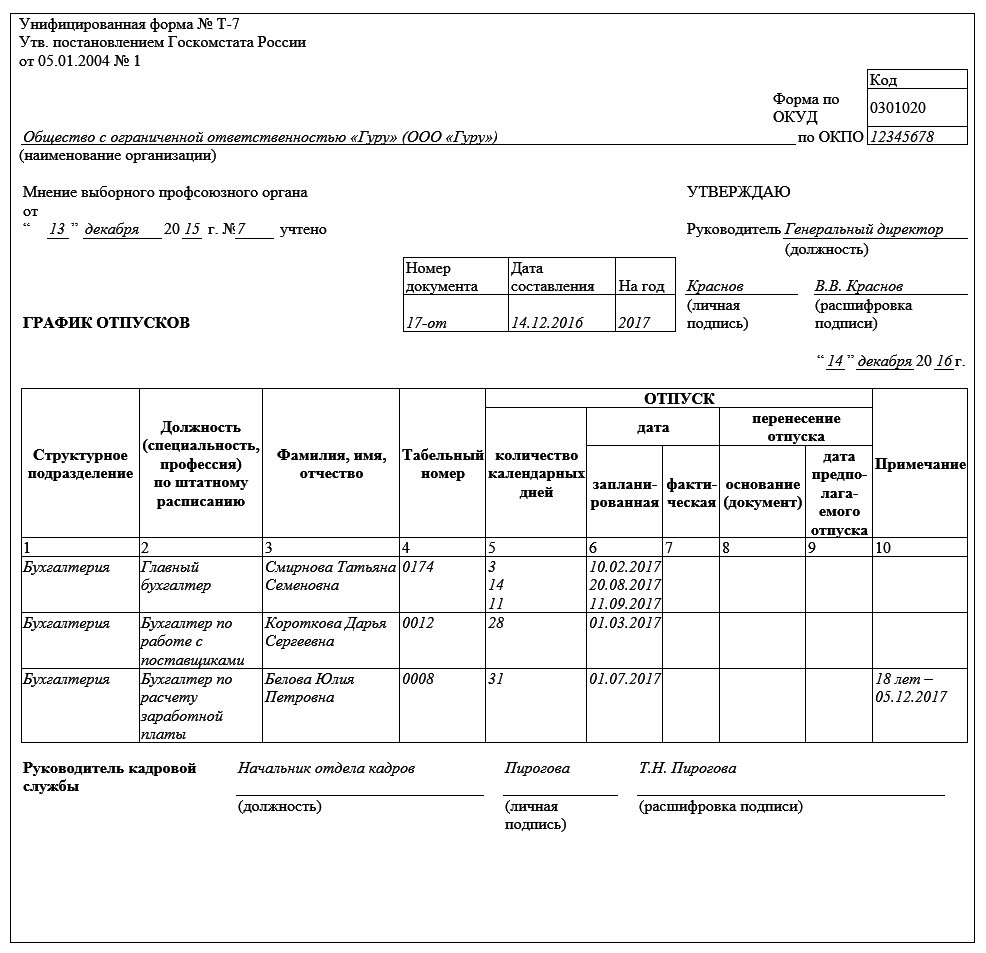The current Russian legislation enshrines the right of each employee to receive leave after a certain time after the start of employment in a particular structure. In practice, there are often cases when a person manages to get a well-deserved vacation only after a while, and sometimes it is not provided at all. In such cases, the question arises whether the employer has the right not to let go on vacation.
The answer to the question is no. Such behavior of the head of the organization in relation to his employees violates their legal rights. The only reason for postponing vacation to another period may be the need to maintain the normal rhythm of the enterprise. This provision is enshrined in Article 124 of the Russian Labor Code.
To protect their interests, the employee must understand that the right to use the leave for his first year of work he gets after six months of continuous work with a particular employer. If there is the consent of the management, according to Article 122 of the Labor Code, leave can be granted earlier.
Norms of the Labor Code of the Russian Federation
All the nuances that relate to the provision of various types of holidays to employees of enterprises and organizations are displayed in Chapter 19 of the Russian Labor Code. The provisions of this section establish the obligation of the employer to provide its employees with paid leave while maintaining their workplace and wages.
The amount of compensation that an employee should receive during the vacation is calculated taking into account the length of service and wages that the person has accrued over the past 24 months. In this regard, a person who has changed her place of work should provide a certificate of salary from her previous place of employment.
The Labor Code also fixes the following points that relate to the issue of vacation pay, for example:
- If the employee has unused vacation upon his dismissal, the employer must pay him monetary compensation.
- An employee has the right to use his vacation with subsequent dismissal from the organization, for this you need to prepare an appropriate application. The fired person will be the last day of vacation.
- When granting leave with subsequent dismissal, the employee has the right, if desired, to withdraw his own application, if another person has not yet been invited to his place.
Types and duration
According to the law, the following types of leave are distinguished:
- The main vacation, which is provided every year for 28 calendar days (Article 115 of the Labor Code of the Russian Federation -).
- Additional leave that a person receives if harmful or dangerous working conditions are noted at the workplace, its minimum period is 7 days (Article 117 of the Labor Code -).
- Another type of additional leave is granted when there are special working conditions. It is most often assigned to law enforcement officers, and its length is determined by additional regulations (Article 118 of the Labor Code -).
- Additional leave in the amount of 3 days can be provided when it comes to irregular working hours (Article 119 of the Labor Code -).
- Leave without pay, the duration of which depends on the desire of the employee with the consent of the employer. For some categories of workers, a certain number of days have been established that can be taken towards this type of vacation.
- Additional leave, which is provided to people working in special climatic conditions. It applies to workers in the Far North and areas that are equated to it. The duration is from 16 to 24 calendar days (Article 321 of the Labor Code of the Russian Federation -).
The articles of the Labor Code determine the minimum number of vacation days, but, based on the financial potential of the company, the employer has the right to establish a longer duration of any of the listed types of legal vacation.
Does the employer have the right not to let go on vacation?
To the question of whether the employer has the right not to let the employee go on vacation, the answer is unequivocal - no, he only has the right to postpone the vacation of the person for another period, if the employee himself agrees to this. In order for everything to be legal, this fact must be properly executed: there must be a statement from the employee and a corresponding order for the organization to transfer.
Special consideration requires the question of what criteria the employer should use to determine that the employee's vacation will affect the efficiency of the entire enterprise. It is important to note that such criteria are not defined at the level of legislation. The issue is resolved at the discretion of the employer, after which his position must be agreed with the employee.
This problem can be considered with an example. The company employs two lawyers. One of them underwent surgery and left for, and at this time the second one, according to the schedule, should go on a planned vacation.
If the second employee goes on vacation, the company will be left without legal support, which is unacceptable. In this case, the manager may ask the employee who is going on vacation to postpone it until the sick lawyer returns to work.
Another option is that the organization needs the maximum number of employees to participate in the production process, since the enterprise has received a large order for the production of a large batch of products.
In such a situation, the employer may assume that the vacation of employees who are involved in the production process will lead to a delay in the completion of the order. In this regard, he may ask employees who are going on vacation to postpone it for a while.

According to the schedule and according to a personal statement without it
There are two approaches to vacation registration: vacation according to a predetermined schedule and outside the schedule on a personal application. Can an employer refuse to rest an employee or is he obliged to provide a person with the opportunity to rest in each specific case?
When it comes to planned vacation, the manager may refuse to rest the subordinate, provided that:
- consent was received from the employee to transfer the vacation to another period;
- according to the rules of office work, a personnel order was issued to postpone the vacation;
- The adjustments are reflected in the holiday schedule.
In some cases, management has a question whether such documents can be issued if the employee is already on vacation. The answer is negative. Vacation cannot be moved to another period if the employee is already in. In such a situation, a person should be recalled from vacation by agreement of the parties.
If the manager, without any explanation, does not let the person go on vacation according to the schedule, the employee has the right not to come to work when the first day of legal rest comes, this act cannot be regarded as a violation. It should be noted that a person has the right to go on vacation according to a schedule even without a special application. But this situation is fraught with certain risks.
For example, an employer, in the absence of an employee's application, may not pay the vacation pay due to him in a timely manner. In addition, when going on vacation according to the schedule without notifying the authorities about it, conflict situations may arise.
When a person has an urgent need to take a vacation in a different period than indicated in the schedule, you should write an application addressed to the head of the company. However, in this case, unlike the previous one, the director has every right to refuse. And this will in no way violate the rights of the employee and will not be contrary to legislative norms.
You can go on vacation outside the plan only if the manager approves this step of the employee. If a person, having submitted an application, but not having received a director’s approval visa and without waiting for the issuance of an appropriate order for the organization, allows himself not to go to work, the employer has every right to qualify such an act as absenteeism. This allows you to apply a disciplinary sanction to the employee, up to and including dismissal.
Documentation of refusal
If there are grounds for not letting the employee go on vacation, this fact must be documented in accordance with the norms of the current labor legislation:
- the head of the structural unit submits a petition about the need to involve more employees in the work or production process, since only in this case it will be possible to fulfill the plan in a timely manner;
- the manager issues an order, but first consent must be obtained from the employee regarding his readiness to postpone the vacation for another period;
- the employee must put his signature under the order;
- as a result, the vacation or part of it must be transferred to another period, which must also be displayed in the order.
It is important to state in the document why the work cannot be done without an employee who, according to the schedule, must go on vacation. The reason must be stated clearly and there should be no doubt that management's actions are justified. Otherwise, during the inspection by the regulatory authorities, their representatives may consider the refusal to leave unlawful, for which a fine may be imposed on the employer.
Employee actions
In the event that the employer has received a refusal from the employee regarding, but still does not provide leave, the employee has the right to apply to various structures in order to restore his violated rights. These authorities may include a labor inspectorate, a trade union or a judicial body.
A complaint that is sent to one of these structures must be accompanied by copies of documents that testify that a person has a legal right to leave (this may be a vacation schedule), and papers that confirm that the person is in an employment relationship with a specific employer.
Filing a complaint is not grounds for leaving a person on vacation. He should wait for its consideration and a decision on which the employer will be obliged to provide leave. Before preparing a complaint, you should inform your employer of your intention. You should also provide him with arguments regarding the need to go on vacation during this period, for example, inform about the availability of vouchers to a sanatorium.
Most employers are ready to make compromises with employees, because they do not want to once again have contact with controlling structures.
When You Can't Refuse
There are certain categories of employees whose vacation cannot be postponed even if they agree to this:
- Women who are preparing for maternity leave or just left it, as well as those who went to work after the end of parental leave.
- Men whose wives are preparing for childbirth and therefore rest.
- Employees who, in parallel with work, receive education in absentia.
- Parents/guardians whose permanent job is in the northernmost regions of Russia or in areas equivalent to them. Such leave may be granted to one of the parents if he plans to accompany a child under 18 years of age to another area, for example, to enroll in an educational institution.
There are also certain categories of employees who have the right to apply to the employer with an application for leave at any time convenient for them, and they cannot be refused:
- Employees who have not yet reached the age of 18.
- A man or woman who is raising two or more children under the age of 12.
- Employees who were previously recalled from leave by management. Such people, if they wish, have the right to spend the rest of the vacation at any time convenient for themselves or to add it to the vacation they are going to take next year.
- Persons who are listed in the organization as part-time workers have the right to take vacation at the same time when it is granted to them at their main place of work.
- A parent or guardian who is raising a disabled child under the age of 18.
- Military spouses. Rest is provided to them in the same period when it is provided to their soulmate.
- Employees who have donated blood many times, in connection with which they received the state status of a donor.
- Certain individuals who are associated with .
Study leave for students
The employer is obliged to provide a part-time student. The basis for this is a call from an educational institution, which indicates the period for which the leave should be granted.
However, if a student has not one place of work, but several at once, leave can only be granted to him at the main place of employment. In the organization in which he works, the student will only be able to take time off at his own expense.



